Researchers
Prof Yan Ning (Centre Director)
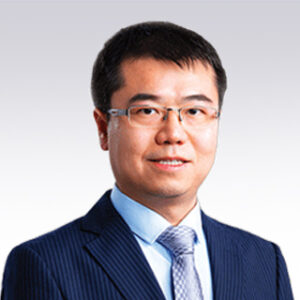
Prof YAN Ning
Nitrogen- and Carbon Dioxide-Derived Hydrogen Carrier
Prof YAN Ning is the CHI Centre Director and Professor at the Department of Chemical and Biomolecular Engineering at NUS. He received B.Sc. and PhD degrees in Chemistry from Peking University working with Prof. Yuan Kou. After a Marie Curie Fellowship at the École Polytechnique Fédérale de Lausanne in Switzerland with Prof. Paul Dyson, he joined NUS in 2012 and established the Lab of Green Catalysis. Prof. Yan works actively in advanced catalysis, renewable energy, and sustainable chemistry, for which he was duly recognised by recent awards from the Royal Society of Chemistry, the American Chemical Society and the National University of Singapore, among others. He was listed as a Highly Cited Researcher 2020 (Chemistry) by Clarivate and was awarded the NRF Investigatorship (Class of 2022).Email: ning.yan@nus.edu.sg
Lab Website
Prof Antonio H. Castro Neto

Prof Antonio H. CASTRO NETO
Sustainable Membranes Based on 2D Materials for H2 Separation and Purification
In 2010, Prof Castro Neto founded and directed the Graphene Research Centre which, in 2014, became the Centre for Advanced 2D Materials (CA2DM) funded by the National Research Foundation of Singapore. In 2021, Prof. Castro Neto became the Founder and Co-Director of the Institute for Functional Intelligent Materials (IFIM) funded by the Ministry of Education, Singapore. Prof. Castro Neto is a Distinguished Professor in the Department of Material Science Engineering and Physics, he is also Professor at the Department of Electrical and Computer Engineering, at the National University of Singapore (NUS). In 2003, Prof. Castro Neto was elected a fellow of the American Physical Society (APS) and in 2011 he was elected a fellow of the American Association for the Advancement of Science (AAAS). Prof. Castro Neto is also a Fellow of the National Academy of Science of Singapore and of the Brazilian Academy of Science.Email: c2dhead@nus.edu.sg
Lab Website
Prof Chen Peng
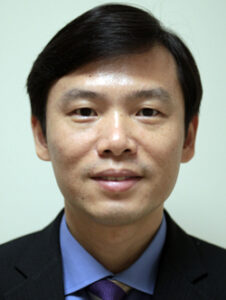
Prof CHEN Peng
Electrolysers Assembled from Single-Atom Catalysts
Dr Chen completed his doctorate in electrical engineering with research focus on electrophysiology at University of Missouri - Columbia in 2002. Then he did his post-doctoral training in Department of Molecular and Cellular Biology at Harvard University where he conducted research on nanopore based single-molecule sensing. In 2005, Dr. Chen joined Division of Bioengineering at Nanyang Technological University (Singapore) as an assistant professor. He is now a full professor of bioengineering in school of chemical & biomedical engineering. Dr. Chen’s group works at the interface of biology, nanomaterials, and engineering in the efforts to develop novel nanotechnologies to address unmet problems. He has published >230 papers in reputable journals such as Advanced Materials, Nature Communications, Angewandte Chemie International Edition, Nano Letters, ACS Nano, Physical Review Letters, Advanced Functional Materials, Small, Biosensors & Bioelectronics, Chemical Society Reviews, etc., which have received >23000 citation counts according to Web of Science.Email:chenpeng@ntu.edu.sg
Lab Website
Prof Chen Wei

Prof CHEN Wei
Surface Catalytic Reaction Mechanism Investigation
Prof CHEN Wei is currently a Full Professor in both Chemistry Department and Physics Department at NUS, and Director of NUS-TJU Joint Institute in Fuzhou. He received his Bachelor degree in Chemistry from Nanjing University (China) in 2001 and his PhD degree from the Chemistry Department at NUS in 2004. His current research interests include atomic scale interface engineering for molecular, organic electronics and 2D-materials based devices, as well as interface controlled nanocatalysis. Dr. Chen is a recipient of NUS Young Investigator Award (2010), Singapore Young Scientist Award (2012), NUS Dean’s Chair Professor (2016), NUS Faculty of Science Outstanding Scientist Award (2019) and Mitsui Chemicals-SNIC Industry Award (2020).Email:chmcw@nus.edu.sg
Lab Website
Prof Ho Ghim Wei

Prof HO Ghim Wei
Solar enabled technologies
Ghim Wei Ho is currently the Associate Provost of Academic Affairs and a Provost’s Chair professor of the National University of Singapore (NUS). She leads the Sustainable Smart Solar Systems research group, which focuses on fundamental and applied research in nanosystems, involving emerging low dimensional nanomaterials, interfacial interactions and hybridized functionalities for energy, environment, electronics and healthcare. She has co-authored more than 200 papers in the international refereed journals. She was recognized as a Clarivate Highly Cited Researcher in 2023 in the Cross Field category. She was an elected Scholar at Selwyn College, University of Cambridge and has been a Cambridge Commonwealth Society Fellow since 2006. She is also a Fellow of the Royal Society of Chemistry (FRSC). Her accolades include the L’OREAL UNESCO for Women in Science Fellowship in 2014, the JCI’s Ten Outstanding Young Persons (TOYP) Award in the Science and/or Technological Development category in 2015, the Great Women of Our Time in Science & Technology in 2016, and the ASEAN-US Science Prize for Women in 2016. Additionally, she serves as an Associate Editor for journals such as Journal of Materials Chemistry A, Materials Advances and EcoEnergy and is on the Editorial Advisory Boards of Advanced Sustainable Systems, ChemPlusChem, Advanced Materials Technologies, ChemNanoMat, Next Energy and Nano Trends.Email: elehgw@nus.edu.sg
Lab Website
Prof Lin Zhiqun
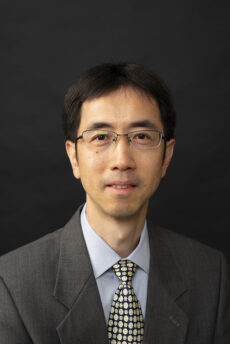
Prof LIN Zhiqun
Green Hydrogen Production
Dr. Zhiqun Lin is currently Professor of Chemical and Biomolecular Engineering at the National University of Singapore (NUS). He received his BS degree in Materials Chemistry from Xiamen University in 1995, Master degree in Macromolecular Science from Fudan University in 1998, and PhD degree in Polymer Science and Engineering from University of Massachusetts, Amherst in 2002. He did his postdoctoral research at University of Illinois at Urbana-Champaign. He joined the Department of Materials Science and Engineering at the Iowa State University as an Assistant Professor in 2004 and was promoted to Associate Professor in 2010. He moved to Georgia Institute of Technology in 2011, and become a Professor in 2014. He relocated to National University of Singapore in 2022. His research interests include photocatalysis, electrocatalysis, batteries, solar cells, block copolymers, conjugated polymers, functional nanocrystals, hierarchically structured and assembled materials, and surface and interfacial properties.Email: z.lin@nus.edu.sg
Lab Website
Prof Praveen Linga

Prof Praveen Linga
Carbon Dioxide Capture & Storage
Praveen LINGA is a Professor in the Department of Chemical and Biomolecular Engineering at NUS. He holds a Ph.D. from the University of British Columbia under the supervision of Professor Peter Englezos. He obtained his Bachelor’s degree from University of Madras and Master’s degree from IIT Kharagpur in chemical engineering from India. His research interests are in the areas of clathrate (gas) hydrates, storage and transport of fuels, carbon dioxide capture, storage & utilization (CCS & U), seawater desalination, and recovery of energy. His research group at NUS particularly focuses on enhancing the kinetics of hydrate formation for several applications of interest by developing novel reactor designs, experimental methods, and techniques. Up to date, he has published more than 170 research articles and delivered more than 100 invited talks and seminars. He is recognized among the World’s Most Influential Scientific Minds and Highly Cited Researcher in Engineering by Clarivate Analytics, recognised as Young Alumni Achiever by IIT Kharagpur and received Outstanding Asian Researcher and Engineer Award by the Society of Chemical Engineers Japan. He is a Fellow of the Royal Society of Chemistry (FRSC). Currently, he serves is an Executive Editor in Energy & Fuels journal of ACS publications. He is also an invited Editorial Advisory Board member of the following journals: Advances in Applied Energy, Applied Energy, Current Opinion in Chemical Engineering, and Fluid Phase Equilibria.Email: chepl@nus.edu.sg
Lab Website
Prof Loh Kian Ping

Prof LOH Kian Ping
Advanced Materials Convergence Technology
Prof. LOH Kian Ping is currently the Full Professor in NUS, an awardee of the President’s Science Award in 2014 and a well-established researcher in the field of advanced two-dimensional materials such as graphene, transition metal dichalcogenides, covalent organic frameworks and hybrid perovskites. He is head of the 2D materials group in NUS Centre for Advanced 2D Materials, and also a co-director of the Shenzhen-NUS Joint Collaborative Innovation Center for Optoelectronic Science & Technology. He is the lead PI for many CRP, NRF and MOE projects. Currently, he is the associate editor of the American Chemical Society journal Chemistry of Materials and holds a H index of 97 with a total citation of ~54,000. His team has established a universal flow system for energy applications to transform laboratory breakthrough into practical operation.Email:chmlohkp@nus.edu.sg
Lab Website
Prof Wang Qing
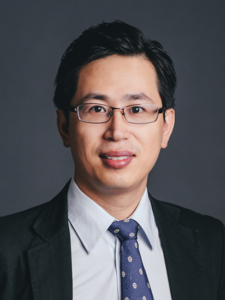
Prof WANG Qing
Redox-mediated Energy Conversion and Storage
Prof WANG Qing is currently a full Professor in Materials Science and Engineering Department at NUS. He received his Bachelor degree in Applied Chemistry from Harbin Institute of Technology (China) in 1997 and his PhD degree in Physics from Institute of Physics, Chinese Academy of Sciences in 2002. His research interest is “Charge Transport in Mesoscopic Energy Conversion and Storage Systems”. Prof. Wang is a recipient of NUS Engineering Young Researcher Award (2014), NRF Investigatorship (2018), and NUS Dean’s Chair Associate Professor (2021). Currently his group is extensively working on a new research platform — redox targeting-based flow batteries and beyond. These also include decoupled on-demand H2 production and spent battery materials recycling, etc.Email:msewq@nus.edu.sg
Lab Website
Prof Xie Jianping

Prof XIE Jianping
Metal Nanoclusters-based Model Catalysts
Prof. XIE Jianping is a full professor at the Department of Chemical & Biomolecular Engineering at National University of Singapore (NUS). Prof. Xie joined NUS in 2010 and established the Noble Metal Nanoclusters research group. His group is known for the work on engineering atomically precise metal nanoclusters for biomedical and catalytic applications. His current research interests include noble metal nanoclusters, nanomedicine, and nanocatalysis. Prof. Xie’s recent research award includes Highly Cited Researcher from 2018 to 2022 (by Clarivate Analytics), Zasshikai Lectureship from University of Tokyo (2020), Dean’s Chair from Faculty of Engineering, NUS (2020), and Fellow of Royal Society of Chemistry (FRSC) (2019). Prof. Xie is an Associate Editor of Aggregate, Wiley.Email:chexiej@nus.edu.sg
Lab Website
Prof Xu Zhichuan Jason

Prof XU Zhichuan Jason
Small Molecule Electrocatalysis and Mechanism Studies
Prof. XU Zhichuan (Jason) is a Professor of electrochemistry in the School of Materials Science and Engineering, Nanyang Technological University. His research work is with a focus of energy related catalysis, such as reactions in fuel cells and hydrogen production. His team work on the small molecule electrocatalysis and related mechanism studies. He is a pioneer researcher in revealing fundamentals of transition metal spinel oxides for heterogenous catalysis. He is also a world-leading researcher in the fundamental research of magnetism and spin related oxygen electrocatalysis. Dr. Xu has received several awards such as Chun-Tsung Endowment Outstanding Contribution Award - Excellent Scholar at 2018 and the Zhaowu Tian Prize for Energy Electrochemistry by International Society of Electrochemistry (ISE) in 2019. He was awarded Fellow of Royal Society of Chemistry (FRSC) on Nov. 2017. He serves as the president of ECS Singapore Section. Dr. Xu has been a Highly Cited Researcher by Clarivate Analytics, Web of Science since 2018.Email: xuzc@ntu.edu.sg
Lab Website
Prof Zhao Dan
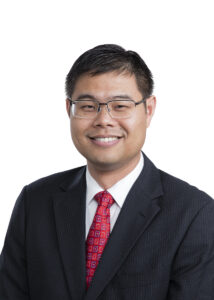
Prof ZHAO Dan
Advanced Porous Materials and Hybrid Membranes
Dr Zhao obtained his PhD degree in Inorganic Chemistry under the supervision of Prof. Hong-Cai Joe Zhou at Texas A&M University in 2010. After finishing his postdoctoral training at Argonne National Laboratory, he joined the Department of Chemical & Biomolecular Engineering at National University of Singapore in Jul 2012 as an Assistant Professor, and was promoted to Associate Professor with tenure in Jul 2018. He gained full Professorship in 2025. His research interests include advanced porous materials and hybrid membranes with the applications in clean energy and environmental sustainability, including hydrogen purification and storage.Email: chezhao@nus.edu.sg
Lab Website
A/Prof Dong Zhili
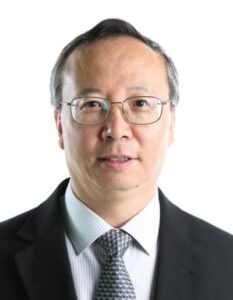
A/Prof Dong Zhili
Processing of Metals and Alloys for Hydrogen Transportation and Storage
A/Prof Dong Zhili is currently in the School of Materials Science & Engineering of Nanyang Technological University. He received his B.Eng. degree in metallic materials engineering from Tsinghua University in 1984. Dong obtained his Ph.D. degree from Tsinghua University in 1989 under the Joint Ph.D. Program of the Ministry of Education of China. Dong received the Japanese Government Scholarship and carried out his PhD research at Osaka University in 1987 and 1988. Dong developed his research in the areas of materials engineering, synthesis of geo-mimetic materials, crystal structure/electronic structure-property relationships, and interface structure analysis. He has more than thirty years experience in x-ray diffraction and transmission electron microscopy of materials.Email:zldong@ntu.edu.sg
Lab Website
A/Prof Huang Yizhong
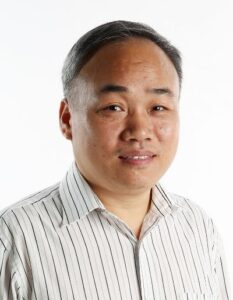
A/Prof HUANG Yizhong
Water Electrolysis for Hydrogen Production
Dr Huang Yizhong is currently an Associate Professor in the School of Materials Science and Engineering at Nanyang Technological University Singapore. He has been working at the University of Oxford as a postdoc and then a research fellow (faculty member) and college fellow of Wolfson and now an academic visitor. He has been honoured with a few awards such as Chutian Scholar and UK-Southeast Asia Partners in Science Collaboration Development. He has published over three hundred papers in journals such as Nature, Nature communications, Nano Letters, Advanced Materials and ACS Nano. He has developed expertise in transmission electron microscopy (TEM) and focused ion beam (FIB) system with specific research interests in electrochemical energy conversion and storage, in particular, hydrogen production.Email: YZHuang@ntu.edu.sg
Lab Website
A/Prof Sibudjing Kawi
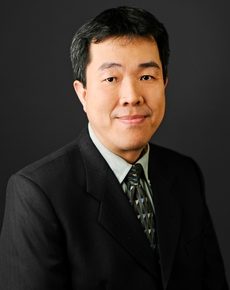
A/Prof Sibudjing KAWI
Catalytic Membrane Reactor for Hydrogen Production
A/Prof Kawi Sibudjing is a meticulous researcher, publishing more than >300 international peer-reviewed journal articles. Prof. Kawi's research focuses on the design and synthesis of nano-catalysts for sustainable energy and environmental applications using thermal, plasma, photo- and electro-catalytic processes such as biomass conversion, CO2 mitigation and utilization, low-carbon H2 production, light hydrocarbon conversions (reforming, pyrolysis and dehydrogenation), water gas shift reactions, and integrated catalytic membrane reactors. His core expertise lies in developing highly active, exceptionally coke resistant, stable noble/non-noble metal based catalysts and catalytic systems for sustainable development, and the development of novel catalytic membrane reactors for wide range of applications.Email:chekawis@nus.edu.sg
Lab Website
A/Prof Koh Ming Joo
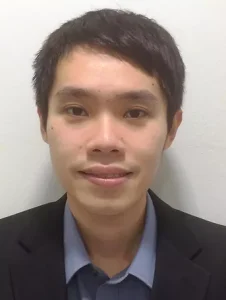
A/Prof KOH Ming Joo
Synthesis of Hydrogen Carriers
A/Prof KOH Ming Joo was President’s Assistant Professor in the Chemistry Department at NUS. He graduated from Nanyang Technological University with a B.Sc. degree (first class honors) in 2012, before heading to Boston College for his Ph.D. and post-doctoral studies. In June 2018, he joined the Chemistry Department at NUS. His main research focuses on developing sustainable solutions that address critical challenges in chemical synthesis (e.g., LOHCs), through homogeneous base metal catalysis and radical chemistry. Dr. Koh has established a team equipped with state-of-the-art research capabilities for innovative synthesis, purification and analysis. He is a recipient of the NUS Inauguration Grant (2019), Asian Core Program Lectureship Award for China and Thailand (2019), Innovators Under 35 Asia Pacific Award from MIT Technology Review (2021) and Thieme Chemistry Journals Award (2022).Email: chmkmj@nus.edu.sg
Lab Website
A/Prof Lu Jiong

A/Prof LU Jiong
Hydrogen Production and Materials Characterization
A/Prof LU Jiong is an Associate Professor at Department of Chemistry and Institute for Functional Intelligent Materials at NUS. He received his Bachelor degree from Fudan University (China) in 2007 and Ph.D. degree from National University of Singapore in 2011. His current research interests include atomic-scale materials design and investigation of atomic-scale science in low-dimensional functional materials towards next-generation solid state devices and atomically-precise catalysts for renewable energy applications. Prof. Lu is a recipient of JMCA Emerging Investigators 2019, JACS Emerging Investigators 2021 and NUS Faculty of Science Young Scientist Award (2021). His team has developed a versatile synthetic platform for the scalable and automated production of ultra-high-loading single-atom catalysts (UHD-SACs), which can be exploited for efficient and stable hydrogen production from water (Nature Nano 2021).Email: chmluj@nus.edu.sg
Lab Website
A/Prof Sanjib Kumar Panda
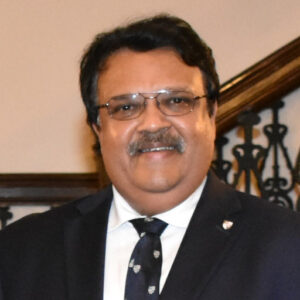
A/Prof Sanjib Kumar PANDA
Hydrogen Fuel Cell Integrated Electric Power Grid
Sanjib Kumar Panda received a Bachelor of Engineering Degree with 1st Class Honours from Sardar Vallabhabhai Regional College of Engineering and Technology, Surat, India, in 1983. He was awarded the Gold Medal for securing the highest marks not only amongst the B. Engg. (Electrical) but also for securing the highest marks amongst all the B. Engg. (Civil, Mechanical and Electrical) students. He also earned a Masters of Technology Degree from the Institute of Technology, Banaras Hindu University, Varanasi, India in 1987. He was awarded the Gold Medal for securing the highest marks amongst all the M. Tech. (Electrical) students. Subsequently, he earned a PhD. Degree from the University of Cambridge, U.K., in 1991. He was awarded the Nehru Cambridge Fellowship and Overseas Research Studentship from the Cambridge Commonwealth Trust for Cambridge University for his PhD studies, 1987-1991. He joined the Department of Electrical and Computer Engineering at the National University of Singapore as a Lecturer in 1992. He is currently serving as an Associate Professor. He has served as Director (Education) at the Design Technology Institute, a joint-venture between NUS and TU/e, The Netherlands and funded by EDB, Singapore. He has served as the Group Head of the Drives, Power and Control Group from 2007-2009. He was appointed as Area Director, Power & Energy Research Group of the Department of Electrical & Computer Engineering at NUS on 1st January 2010. Dr. Panda has carried out extensive research in various areas of control of electric drives and power electronic converters. He has co-authored 1 book and published more than 175 papers in international refereed journals and conferences. His current research interests are in energy harvesting both at high power level as well as at very low-power level for wireless sensor nodes and networks, control of distributed renewable energy generation, assistive technology and mechatronics.Email: eleskp@nus.edu.sg
Lab Website
A/Prof YANG Wenming
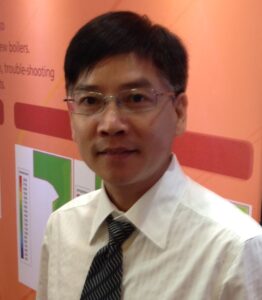
A/Prof YANG Wenming
Clean Fuel Engine Design
After obtaining his Ph.D degree in 2000, A/Prof Yang has been employed as a research fellow in the Department of Mechanical Engineering, National University of Singapore, followed by a teaching instructor and assistant professor in 2006 and 2011, respectively. Since 2017, he has been employed as an associate professor in National University of Singapore. His research interests include: Internal combustion engine fueled by biofuels and blend fuels, development of advanced platform for boilers with high efficiency and low emissions, incinerators and micro power generators etc.Email: mpeywm@nus.edu.sg
Lab Website
A/Prof Zhang Sui

A/Prof ZHANG Sui
Membranes for Hydrogen Purification
Dr. ZHANG Sui is an Associate Professor at the Department of Chemical and Biomolecular Engineering at NUS. She received her Bachelor degree from Fudan University in 2008, and her PhD degree from NUS in 2012. She is an expert in membranes for separations and purifications in relation to water, energy and environment. Her research focuses on understanding and engineering of transport at the nano/micro-level via 2D materials, microporous materials and surface patterns. Her group has recently developed new polymeric membranes for hydrogen separation in challenging conditions. She is the Young Editorial Board member for Journal of Membrane Science, Advanced Membranes, etc.Email: chezhangsui@nus.edu.sg
Lab Website
A/Prof Zhang Chun

A/Prof ZHANG Chun
Theoretical Modelling and Computational Simulation
A/Prof ZHANG Chun is currently an Associate Professor in both Department of Physics and Department of Chemistry at NUS. He received his Bachelor (1996) and Master (2000) degrees in Physics from Fudan University (China), and his PhD degree in computational physics in University of Florida in 2004. Before joining NUS, he worked as a postdoc fellow at Georgia Institute of Technology from 2005 to 2008. His current research interests include the development of first-principles theories for materials at various scales, computational design of two-dimensional functional materials, nanoscale electronics and spintronics, and catalysis at nano- or atomic scale.Email: phyzc@nus.edu.sg
Lab Website
Asst Prof He Qian
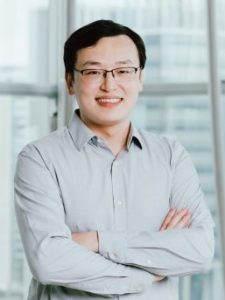
Asst Prof HE Qian
Electron Microscopy and Nanocatalysts
Dr. HE Qian obtained his B.Sc. and M.Sc in Materials Science and Engineering from Tsinghua University in 2008 and Ph.D. in Materials Science and Engineering from Lehigh University in 2013 (with Professor Christopher J. Kiely). Following postdoctoral work at the Oak Ridge National University (with Dr Albina Borisevich), and a lecturer position in the School of Chemistry at Cardiff University, he joined the Department of Materials Science and Engineering at the National University of Singapore (NUS) in 2019. Dr He’s research focused on developing and applying electron microscopy techniques for energy- and environment-related material research, especially nanocatalysts. He was awarded fellowship by the National Research Foundation of Singapore in 2019.Email: mseheq@nus.edu.sg
Lab Website
Asst Prof Sergey Kozlov
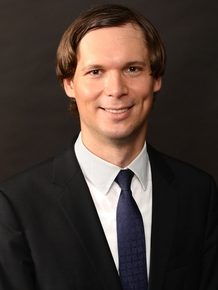
Asst Prof Sergey KOZLOV
Computational Catalysis
Dr. KOZLOV Sergey is an Assistant Professor at the Department of Chemical and Biomolecular Engineering of the National University of Singapore. His group develops unique expertise in electronic structure simulations of nanostructured and nanocomposite materials for catalysis and electrochemistry. Currently, his research focuses on understanding of the reaction mechanisms on nanostructured catalysts and the exploitation of interfacial interactions between metal nanoparticles, oxides, and carbon-based materials to design highly active catalysts for hydrogen energy and green fuel technologies. He was awarded fellowship by the National Research Foundation of Singapore in 2021.Email: sergey.kozlov@nus.edu.sg
Lab Website
Asst Prof Lee Hiang Kwee

Asst Prof LEE Hiang Kwee
Hydrogen Production and Hydrogen Carrier
Dr. Hiang Kwee LEE is an Assistant Professor at the Division of Chemistry and Biological Chemistry, Nanyang Technological University. His research program combines chemistry, nanotechnology, material sciences, and in operando spectroscopy to develop next-generation catalytic ensemble to address global energy/environmental crisis. Prior to being a faculty at NTU, Hiang Kwee worked as a post-doctoral scholar at Stanford University under the Singapore Teaching and Academic Research Talent (START) scheme. He obtained both his doctorate and bachelor degrees in Chemistry from NTU in 2018 and 2013, respectively. He was the recipient of the Vebleo Fellow Award, College of Science International Postdoctoral Scholarship (NTU/MOE), and Dr and Mrs Alex Tan Pang Kee gold medal.Email: hiangkwee@ntu.edu.sg
Lab Website
Asst Prof Lum Yanwei
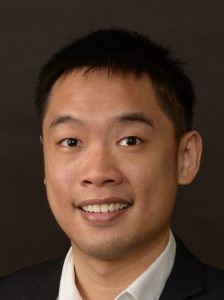
Asst Prof LUM Yanwei
Hydrogen Production and Carrier
Dr. LUM Yanwei is an Assistant Professor in the Department of Chemical and Biomolecular Engineering at NUS. He has a joint appointment at the Institute of Materials Research and Engineering, A*STAR. He received his Bachelor degree in Materials Science and Engineering from Imperial College London (UK) in 2012 and his PhD degree in Materials Science and Engineering from University of California Berkeley in 2018. His research interests include electrocatalysis for CO2 conversion into chemicals and fuels, partial oxidation of small molecules with concurrent hydrogen production, and electro-organic chemistry for pharmaceutical production. He is a recipient of NUS Presidential Young Professorship (2021), Next ASEAN Innovator Award (2021) and National Research Foundation (NRF) Fellowship (Class of 2022).Email: lumyw@nus.edu.sg
Lab Website
Asst Prof Mao Xianwen

Asst Prof MAO Xianwen
Imaging-Guided Catalyst Design for Green Hydrogen
Dr. Xianwen Mao obtained a Bachelor in Polymer Materials and Engineering from Tsinghua University and a PhD in Chemical Engineering from Massachusetts Institute of Technology, and carried out postdoctoral research in the Department of Chemistry and Chemical Biology at Cornell University. During his PhD, Xianwen also worked as a research intern at Novartis Vaccines and Diagnostics (Italy) and National Renewable Energy Laboratory (US). His PhD work focused on molecular engineering of soft materials with tunable catalytic and adsorptive properties for sustainability technologies. His postdoctoral research was centered around developing single-molecule/particle techniques for operando functional imaging of complex energy materials. As the sole first author, Dr. Mao has published original research papers in leading academic journals such as Nature Mater. (also as corresponding author), Nature Chem., Adv. Mater., JACS, Energy Environ. Sci., etc. His other collaborative efforts (including co-1st authorship works) resulted in publications in Chem, Nature Commun., PNAS, Adv. Funct. Mater., ACS Cent. Sci., ACS Nano, Nano Lett., ACS Catal., Angew. Chem. Int. Ed., etc. Dr. Mao has filed 7 patents, and his research works and technological innovations have been frequently featured in news media such as New York Times and Chemical & Engineering News. Dr. Mao has won several awards in recognition of his research works, including the prestigious Materials Research Society (MRS) Postdoctoral Award.Email: x.mao@nus.edu.sg
Lab Website
Asst Prof Wang Lei
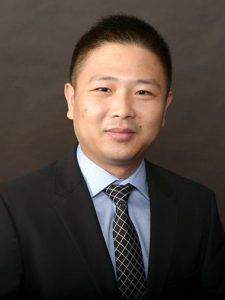
Asst Prof WANG Lei
Electrocatalysis for Green Hydrogen Technology
Dr. WANG Lei is an Assistant Professor at the Department of Chemical and Biomolecular Engineering at NUS. He is an expert in photo- and electro-catalysis aimed at producing sustainable fuels and chemicals from abundant molecules. In particular, his research focus on converting water and carbon dioxide into fuels and chemicals utilizing renewable energy, and the reverse processes which convert fuels back into the form of electricity, with an emphasis on understanding the interplays among the chemistry/physics of the catalyst-materials, the reaction microenvironments and the performance of the catalytic reactions of interest. He received the Wallenberg-Stanford fellowship in 2016 and the Singapore NRF fellow in 2021.Email: wanglei8@nus.edu.sg
Lab Website
Asst Prof Zhang Huangwei
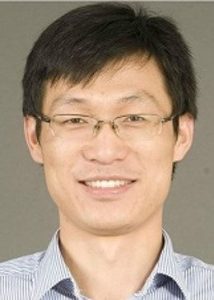
Asst Prof ZHANG Huangwei
Hydrogen Combustion and Safety
Dr. Huangwei Zhang is an Assistant Professor in the Department of Mechanical Engineering at NUS. He received his bachelor’s degree in engineering mechanics and master’s degree in fluid mechanics in 2007 and 2009, respectively from Beihang University. He worked as a research associate in The State Key Laboratory of Turbulence and Complex Systems, Peking University from 2009 to 2011. He obtained his PhD degree in energy and combustion from the Department of Engineering and Churchill College at University of Cambridge in 2015, funded by Rolls Royce UK. He then stayed on from 2015 to 2017 at University of Cambridge to take up a postdoctoral research associate position on multiphase combustion, collaborated with Mitsubishi Heavy Industries in Japan. His research covers gas turbine combustion, internal combustion engines, detonation engines, alternative fuels, as well as thermal management and electrochemistry of lithium-ion batteries. He is the senior member of The American Institute of Aeronautics and Astronautics and member of The Combustion Institute.Email: huangwei.zhang@nus.edu.sg
Lab Website
Asst Prof Zhao Ming
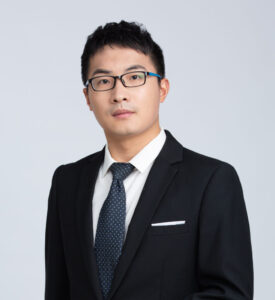
Asst Prof Zhao Ming
NanoCatalysis
Dr Zhao received his Bachelor and Master degrees in Materials Science and Engineering in 2012 and 2015, respectively, both from Nanjing University. In 2019, he obtained his Ph.D. degree in Chemistry under the supervision of Prof. Younan Xia at the Georgia Institute of Technology. His Ph.D. research was mainly focused on the phase engineering of nanomaterials for heterogeneous catalysis. Since 2019, Dr. Zhao became a Postdoctoral Associate in Prof. Peng Chen’s group at Cornell University. His postdoc work centered on the development of novel operando imaging techniques and their implementation in investigating catalysis and energy-related applications. As the first or co-first author, Dr. Zhao has published a number of original research papers in top journals such as Nature Reviews Materials, Chemical Reviews, Nature Communications, JACS, Advanced Materials, ACS Nano, Nano Letters, etc. His other collaborative efforts resulted in multiple publications and patents, including Advanced Materials, Energy & Environmental Science, ACS Nano, Nano Letters, etc. Dr. Zhao has won some awards in recognition of his research, including Sigma Xi Best Doctoral Dissertation, Cherry Emerson Fellowship, NRE Young Star Researcher Gold Award. He was also selected as a full member of the Sigma Xi Scientific Research Honor Society. In March 2023, Dr. Zhao joined the Department of Materials Science and Engineering at NUS as an assistant professor.Email: mingzhao@nus.edu.sg
Lab Website
Dr Gao Jiajian
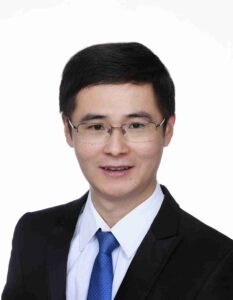
Dr GAO Jiajian
Hydrogen Energy-Related Electrocatalysis
Dr GAO Jiajian is currently a Senior Scientist as well as an Emerging Group Leader at the Institute of Sustainability for Chemicals, Energy and Environment (ISCE2), A*STAR, Singapore. He received his Bachelor degree (2009) from Beijing University of Chemical Technology (China) and his PhD degree (2014) from the Institute of Process Engineering, Chinese Academic of Sciences. Before joining ISCE2, A*STAR, he worked as a research fellow at Nanyang Technology University (NTU), Singapore. His current research interests are Hydrogen energy-related Electrocatalysis (water splitting, H2-O2 fuel cell, and C1 molecules conversion) and Heterogeneous catalysis (CO/CO2 hydrogenation, CH4 conversion). He has published more than 80 peer-reviewed articles and has a H-index of 45.Email: gao_jiajian@isce2.a-star.edu.sg
Lab Website
Dr Hu Jiangfeng
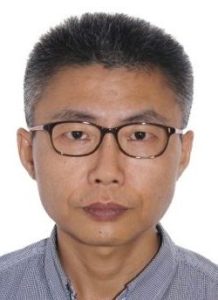
Dr HU Jiangfeng
Surface Technology and Physical Vapor Deposition
Dr. Hu Jiangfeng is currently a Senior Scientist in surface technology group of SIMTech (A*Star) and Adjunct Associate Professor at the Department of Materials Science and Engineering at NUS. He received his Bachelor degree and master degree from Xi’an Jiaotong University (China) and his PhD degree from the ECE Department at NUS. He has over 20 years of R&D experiences in thin film deposition and functional thin film material development, including material and coating layer structure design for thin film based devices, coating process development and optimization. He has collaborated with different companies on coating development for various applications.Email: Hu_Jiangfeng@simtech.a-star.edu.sg
Dr Liu Zhigang

Dr Liu Zhigang
Materials for High-Temperature Hydrogen-Rich Environments
Dr Liu Zhigang is currently a Senior Scientist in the Department of Engineering Mechanics, Institute of High Performance Computing (IHPC), A*STAR, Singapore. He received his Bachelor degree (2006) in material science and engineering from Hubei University of Automotive Technology (China), Master Degree (2008) in mechanical engineering from Beihang University (China), and his PhD degree in computational mechanics from MINES Paris, PSL university (France) in 2012. His research interests involve material design and manufacturing processes, utilizing mathematical modeling and computational tools to analyze the relationship between material structure and performance, and investigating fracture and fatigue mechanics of materials. He has led many research projects in collaboration with industry partners and international organizations. He received the award FY16 IHPC Best Paper Award (Engineering Mechanics) in Singapore (2016) and Distinguished achievement award at NUMISHEET conference in Seoul, South Korea (2011).Email: liuzh@ihpc.a-star.edu.sg
Lab Website
Dr Seh Zhi Wei
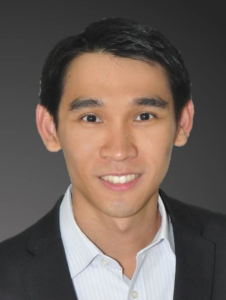
Dr SEH Zhi Wei
Designing Electrocatalysts for Hydrogen Evolution
Dr. SEH Zhi Wei is a Senior Scientist at the Institute of Materials Research and Engineering, A*STAR. He received his BS and PhD degrees in Materials Science and Engineering from Cornell University and Stanford University, respectively. His research interests lie in the design of new materials for energy storage and conversion, including advanced batteries and electrocatalysts. As a Highly Cited Researcher on Web of Science, he is widely recognized for the first experimental demonstration of 2D MXenes as electrocatalysts for hydrogen evolution and carbon dioxide reduction. He also received awards including World’s Top 2% Scientists, Central Research Fund Award, Vebleo Fellow Award, Ten Outstanding Young Persons, Emerging Investigators, Singapore NRF Fellowship, Innovators under 35 Asia, MRS Graduate Student Award, and National Science Scholarship.Email: sehzw@imre.a-star.edu.sg
Lab Website
Dr Wong Voon Kean
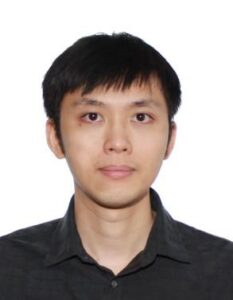
Dr WONG Voon Kean
Ultrasonic Structural Health Monitoring (SHM) Applications
Dr WONG Voon Kean is a Senior Scientist at the Institute of Materials Research and Engineering (IMRE), A*STAR. He received his B.Eng (Hons) degree in Mechatronics Engineering from Universiti Tunku Abdul Rahman (UTAR), Malaysia, in 2012 and completed his Ph.D. in Mechanical Engineering at University of Nottingham Malaysia Campus in 2018. His research focuses on designing high-performance piezoelectric ultrasonic transducers, developing signal processing algorithms, and creating ultrasonic systems for ultrasonic structural health monitoring (SHM) applications.Email: wong_voon_kean@imre.a-star.edu.sg
Lab Website
Dr Zhang Jia

Dr ZHANG Jia
Theoretical Catalyst Simulations and Reaction Mechanism Studies
Dr. ZHANG Jia is currently a Senior Scientist as well as Group Manager of Catalysis & Chemistry Group, in the Department of Material Science and Chemistry, Institute of High Performance Computing (IHPC), A*STAR, Singapore. She received her Bachelor degree (2000) and Master Degree (2003) in Chemistry from Nankai University (China) and her PhD degree from the Chemistry Department at NUS in 2007. Her current research interests are computational heterogeneous catalysis and material chemistry of solid catalysts. Some of her academic research on catalysis were highlighted by A*STAR Research which showcases the best research conducted in A*STAR (2012, 2015, 2016). In addition, the industry project on mixed metal oxide catalysts led by her was awarded the Best Industry Project Award (IHPC, 2013).Email: zhangj@ihpc.a-star.edu.sg
Lab Website
Hydrogen Production
Hydrogen Storage
Hydrogen Utilisation
Characterisation and Modelling
Hydrogen Production
- Prof Antonio H. Castro Neto
- Prof Chen Peng
- Prof Chen Wei
- Prof Ho Ghim Wei
- Prof Lin Zhiqun
- Prof Loh Kian Ping
- Prof Wang Qing
- Prof Xie Jianping
- Prof Xu Zhichuan Jason
- Prof Zhao Dan
- A/Prof Sibudjing Kawi
- A/Prof HUANG Yizhong
- A/Prof Lu Jiong
- A/Prof Zhang Sui
- Asst Prof He Qian
- Asst Prof Sergey Kozlov
- Asst Prof Lee Hiang Kwee
- Asst Prof Lum Yanwei
- Asst Prof Mao Xianwen
- Asst Prof Wang Lei
- Asst Prof Zhao Ming
- Dr Gao Jiajian
- Dr Hu Jiangfeng
- Dr Seh Zhi Wei
- Dr Zhang Jia
Hydrogen Storage
- Prof Praveen Linga
- Prof Wang Qing
- Prof Yan Ning
- Prof Zhao Dan
- A/Prof Dong Zhili
- A/Prof Koh Ming Joo
- Asst Prof He Qian
- Asst Prof Lum Yanwei
- Asst Prof Wang Lei
- Dr Wong Voon Kean
Hydrogen Utilisation
- Prof Wang Qing
- Prof Xie Jianping
- Prof Xu Zhichuan Jason
- Prof Yan Ning
- A/Prof Sibudjing Kawi
- A/Prof Sanjib Kumar Panda
- A/Prof Yang Wenming
- Asst Prof Lum Yanwei
- Asst Prof Wang Lei
- Asst Prof Zhang Huangwei
- Dr Gao Jiajian
- Dr Hu Jiangfeng
- Dr Wong Voon Kean
Characterisation and Modelling
- Prof Chen Wei
- A/Prof Lu Jiong
- A/Prof Zhang Chun
- Asst Prof He Qian
- Asst Prof Sergey Kozlov
- Dr Liu Zhigang
- Dr Zhang Jia
He Limo

Dr. He Limo
Senior Research Fellow
PI: Prof Yan Ning
Research Interests: Ammonia cracking
Email: limo_che@nus.edu.sg
Lab Website
Lei Huang
Dr. Lei Huang
Research Fellow
Email: leihuang@nus.edu.sg
Li Jinzhou
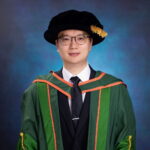
Dr. Li Jinzhou
Research Fellow
PI: Asst Prof Zhang Huangwei
Research Interests: Ammonia combustion (experiment)
Email: jinzhou@nus.edu.sg
Lab Website
Liu Zhihe
Dr. Liu Zhihe
Research Fellow
Email: liuzh07@nus.edu.sg
Ma Peng
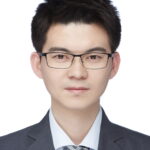
Dr. Ma Peng
Research Fellow
PI: Asst Prof Zhang Huangwei
Research Interests: Ammonia combustion (experiment)
Lab Website
Pu Yunchuan

Samir Boset Rojas Chavez
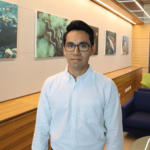
Dr. Samir Boset Rojas Chavez
Research Fellow
PI: Asst Prof Zhang Huangwei
Research Interests: Ammonia combustion (experiment)
Email: sam.rch@nus.edu.sg
Lab Website
Vivek Narayanan
Dr. Vivek Narayanan
Research Scientist
Email: vivek93@nus.edu.sg
Tong Wu
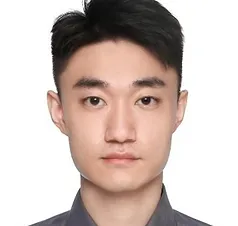
Wang Yuhao
Dr. Wang Yuhao
Research Fellow
Email: wyh-88@nus.edu.sg
Zhang Weidong
Wang Sibo
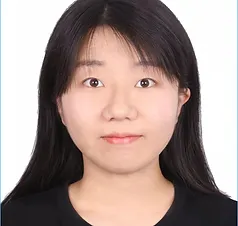
Wang Sibo
PI: Asst Prof Lum Yanwei
Lab Website
Shen Mingwei
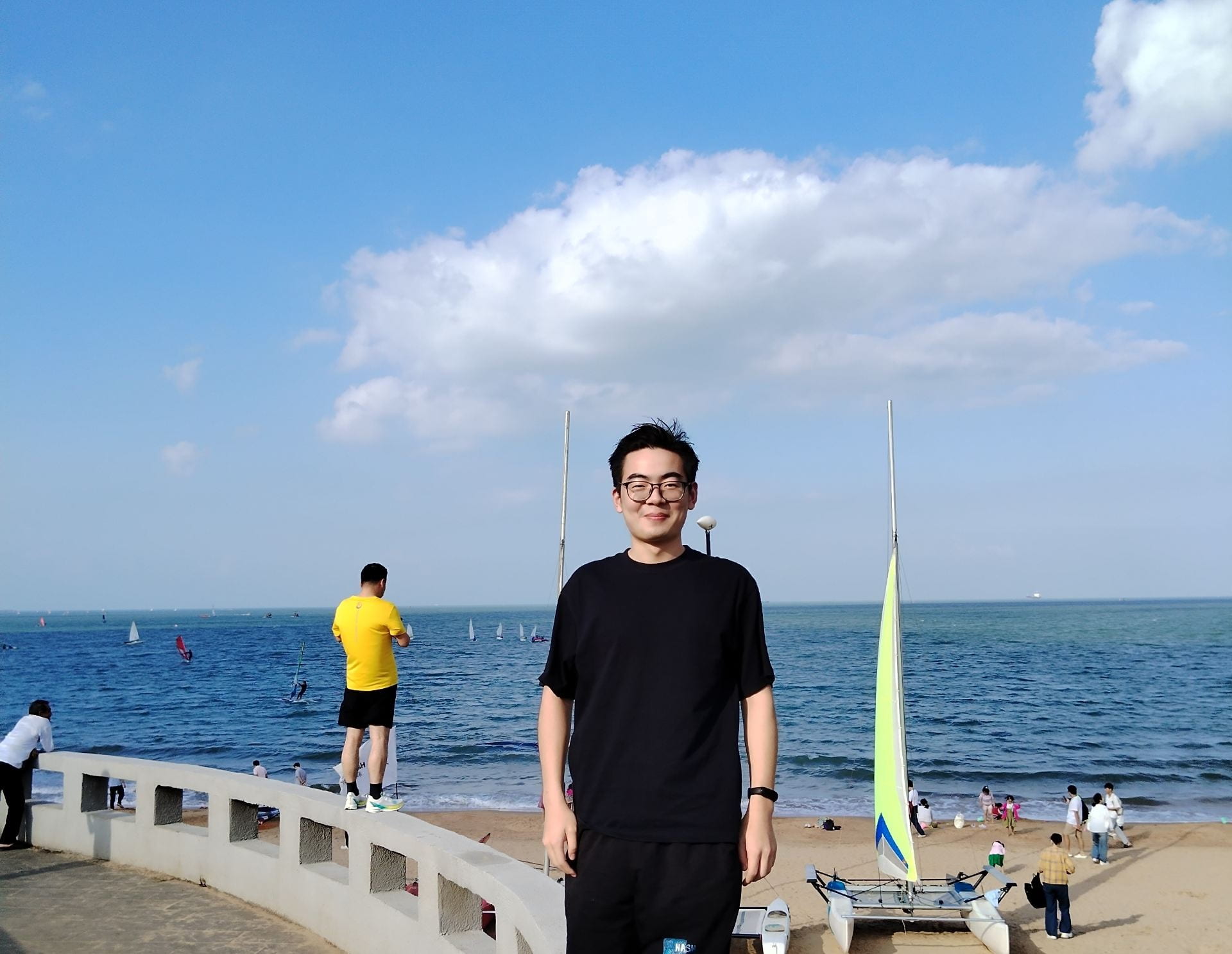
Shen Mingwei
PI: Asst Prof Wang Lei
Email: mingweishen@u.nus.edu
Lab Website
Li Mengxiao

Li Mengxiao
PI: Prof Wang Qing
Email: mengxiao.li@u.nus.edu
Lab Website
Hu Hao
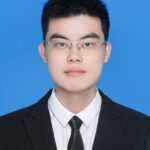
Hu Hao
PI: Asst Prof Zhang Huangwei
Research Interests: Ammonia combustion
Lab Website
- Home
- People
Centre for Hydrogen Innovations
- Mailing address:
National University of Singapore (NUS)
Centre for Hydrogen Innovations (CHI)
University Hall, Lee Kong Chian Wing
21 Lower Kent Ridge Road, #05-02
Singapore 119077
Lab address:
National University of Singapore (NUS)
Centre for Hydrogen Innovations (CHI)
Blk E8, 1 Engineering Drive 3, #01-05
Singapore 117580 - +65 6601 8829
- hydrogen_innovations@nus.edu.sg
© National University of Singapore. All Rights Reserved.

